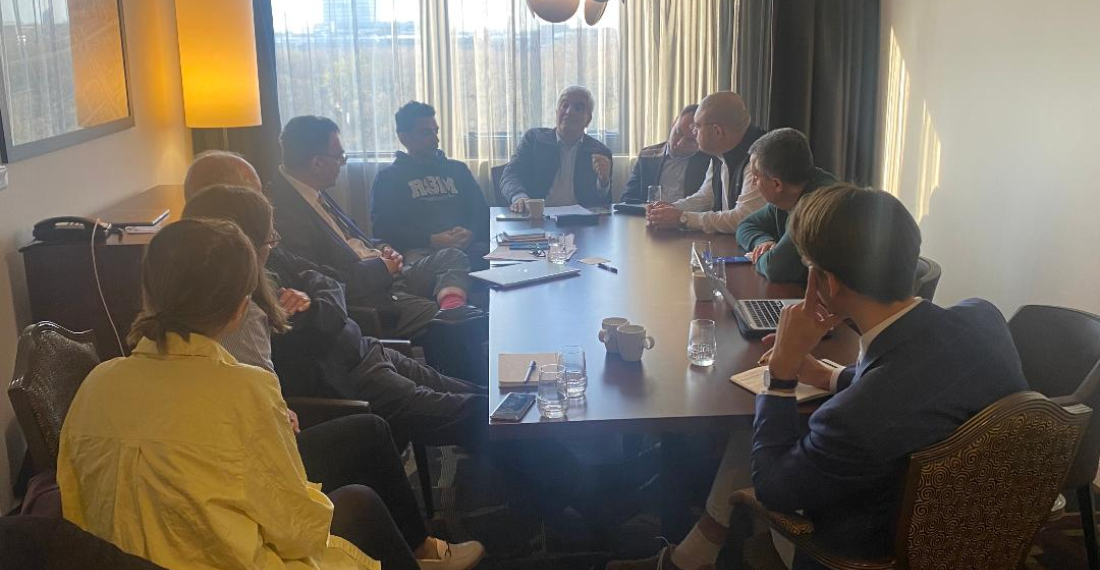The inaugural meeting of the two co-chairs of the thematic group on Peace and Security was hosted in The Hague by LINKS Europe in parallel with the Armenia-Azerbaijan Expert Political Dialogue Platform. During the meeting held on 2 April and chaired by LINKS Europe, Leonid Nersissian (Armenia) and Murad Muradov (Azerbaijan) discussed the work plan for the next nine months.
The meeting of the two co-chairs took place in the context of a project component led by LINKS Europe that involves five thematic groups as part of its deliverables for the EU4Peace III project funded by the European Union. Besides Peace and Security, the areas covered by the thematic groups are Connectivity, Governance, Gender & Diversity, and Climate & Environment.
These groups will bring together opinion makers from Armenia and Azerbaijan. The process of establishing these groups will continue throughout the month of April, with the aim of bringing fresh perspectives to the peace process in the South Caucasus. Each group will be led by a designated moderator and the results will be compiled in a final report.
The two co-chairs thanked LINKS Europe for its work and noted that the LINKS Europe segment of EU4Peace III initiative includes new and innovative work that aims to involve a new generation in the process of regional peace.
The inaugural meeting of the two co-chairs of the thematic group on Peace and Security and the Armenia-Azerbaijan Expert Political Dialogue Platform were convened on the margins of a full-day conference organised by LINKS Europe that brought together experts and activists from the South Caucasus, the European Union and beyond to discuss the current state of political transition in the region.
The conference titled "The South Caucasus: Again in Transition" held in The Hague’s New Babylon Conference Centre on 3 April attracted a wide range of stakeholders, think tanks, diplomats and policy practitioners from Armenia, Azerbaijan and Georgia, as well as from the European Union and Türkiye.
The EU4Peace initiative, supported and funded by the European Union, aims to contribute to sustainable normalisation between Armenia and Azerbaijan through broadened engagement of social groups, linking political processes to wider societal transformation.






